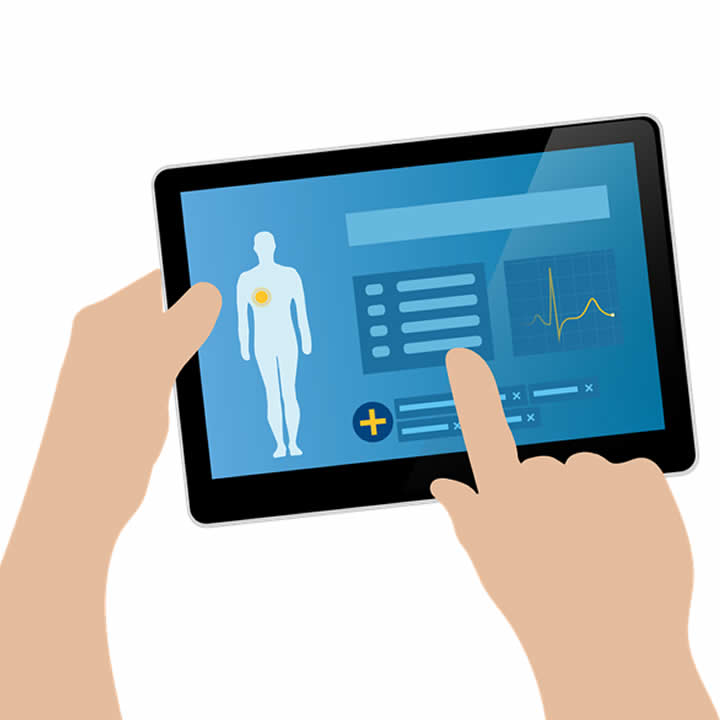The Healthcare sector is immensely vast. It branches out to various sectors that are concerned with a patient’s well-being. One of its areas of expertise is informatics in nursing. Nursing informatics is a very complex field. In simple terms, it combines clinical and technical health languages into one. It is also involved in improving patients’ outcomes and driving patient-centric innovation, which is user-friendly and meaningful.
These informatics aim to manage, define, communicate information, data, and knowledge into nursing practice. All of which streamline healthcare and hospital provided services to patients in a more effective and accessible way.
The Roles Of Informatics In Patient-centered Care.
High-quality health standards focus on patient-centered care. Informatics has made it easier for health care practitioners to do their job, and it did this in many ways.
- Technology Is Incorporated. Applying technology to the available information allows problems to be detected earlier. For instance, using electronic documentation can monitor a patient’s status rapidly. Their vital signs are always accessible. Nurses can interpret this data as well as systematically arrange it. All of this makes it easier to formulate an appropriate action plan for the patient. Electronic chartering also reduces labor on nurses, making them available for other essential tasks without spending too much time and resources on one patient.
- Creates Educational Programs. Top-notch educational programs use nursing informatics to create a diverse learning platform, which helps hospitals train new and current staff for effective patient care. The data can address the popular endemic issues and find solutions to resolve them. External education certificates can further integrate these learning techniques. All of these help nurses in managing expectations while administering care. It is also a useful learning resource for the staff to revisit as many times as possible and improve teaching and learning standards.
- Application of a Standard Language. Informatics can help standardized nursing language, which facilitates documentation for electronic health records. As a result of which nurses can use templates instead of detailed notes. These templates are understood by the entire nursing staff and assist them with their workload. Templates can indicate vital information and what information needs monitoring. With the appropriate codes, the nursing staff will know which patients require intensive care right then and there.
- Detects Areas Of Improvement. Informatics identify areas of errors in data collection. It identifies the source of error and analyzes the board to find a pattern in the mistakes, including retrieving data from other facilities.
The medical board then studies compiled data and plans a strategy to solve the problem. After a while, informatics will determine the success in implementation. Informatics’ most crucial action is improving the day-to-day activities of nurses as they work with patients. Improvement helps in saving the hospital from tremendous loss by working with inaccurate data. It also protects patients from paying incorrect bills. The discrepancies in billing can also become a legal concern for hospitals.
- Faster Data Recording. Nurses spend a copious amount of time on documentation. They need to make detailed patient charts, which other health care practitioners will use. Informatics helps them chart data electronically, which makes it accessible across the board in real-time. It is also tremendously efficient, time-saving, and cuts back on costs. Which drastically improves patient care without compromising on their treatment. Informatics records data fast and organizes and stores them appropriately, which saves the hassle of indexing.
- Continued Care. Nursing Informaticists create protocols and procedures which are standardized for different departments. The purpose is to establish proper communication and interactions between departments. Ask for help when needed and have the tools and insight to provide optimal care for various patients.
- Increased Privacy. Nursing Informatics makes use of various programs and software to secure patient data. Digitized information has a higher chance of being corrupted. The informatics collects, analyzes, stores, and uses data securely and safely, protecting the patient’s integrity, which boosts the hospital’s reputation and continued trust in its resources.
These are the main areas on which informatics address. In recent times it has become another viable career option. If you’re considering a career in informatics, here’s what you need to know.
How Is Informatics As A Career Choice?
Informatics is a relatively new field. However, experienced informaticists have found this as a very fulfilling field. There are many benefits of working in the area. They work in hospitals, consulting firms, universities, and healthcare facilities. Informatics provides various services, such as controlling healthcare costs for the private and public sectors, which cascades into affordable healthcare for patients and broader insurance coverage.
The benefits this career brings makes it a suitable field for expansion. Given current technological trends, it will continue to grow even more. It has numerous job opportunities with a perspective for a fresh batch of applicants to apply. As a career choice, it is one of the most promising options in a modern healthcare setting.
Wrap Up
The healthcare sector deals with multiple fields. Informatics is the latest growing addition to this sector. Nursing informatics deals with patient care disciplines ranging from education, administration, research, and clinical practice.
Subjecting the current expanding population to current outdated medical practices is no longer an option. Hospitals deal with an influx of patients daily. There is a vast amount of data that needs accurate recording and effective communication. Any hindrance in this process jeopardizes patients and costs them resources to make up for the loss.
Nursing informatics steadies the workflow by shifting manual data to automated collection. Which makes it easier for health care practitioners to securely access data, and multiple departments can work on the same data in real-time.
Informatics helps achieve modern hospital’s two primary goals of efficiency and optimal treatment. Innovative educational programs can utilize this informatics, preparing more workers to tackle hospital work. You can see a precise observation across the board how informatics has shifted the landscape of modern hospital techniques and will only continue to grow from there.

